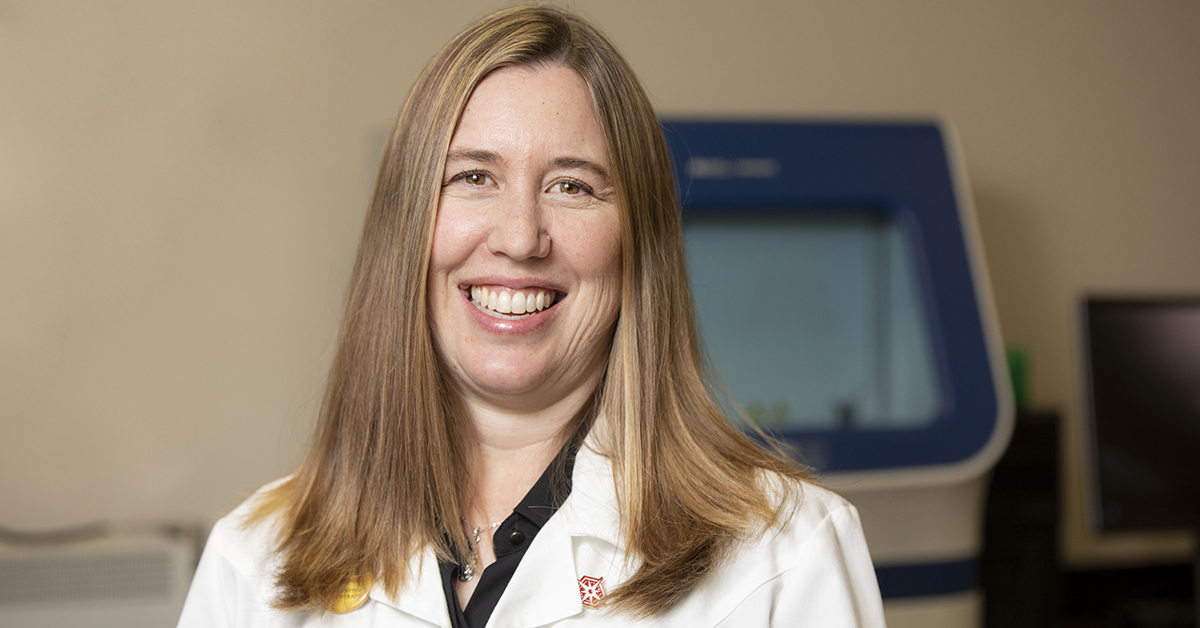Personalized Medicine

Imagine a world where health care is based on who you are and what health needs you
have as an individual versus health care designed for all people in general.
Precision medicine is changing the way doctors prescribe medicine. Diagnostic molecular
scientistsare working towards this medicine, where medicine is catered to you—all
because of an individual’s genetics. We all have different genetics. And it makes
perfect sense that each human being will respond differently to disease and treatments.
This is what molecular pathologists are researching and working towards. The goal
of all of this detailed knowledge is to make better outcomes for the patient.
Take for example redheads who have a dental procedure done. There are published studies
that Novocain does not work in the same timeframe for redheads as it does for other
patients who are having dental work done. The drug’s effectiveness does not kick in
for them for almost an hour. The research showed many dentists know now to allow a
redheaded patient to sit 30 minutes longer to allow the medicine to take its full
effect. A person may metabolize a drug differently than someone else based on their
genetics. In some cases, especially pediatric patients, even Tylenol can act differently
with each person. The drug can build up in the young patient’s system. If it is given
to the patient every four to six hours, they cannot metabolize it. The hope with molecular
diagnostics is that the patient’s individual genetic information will be used to change
the way health care providers prescribe medicine.
Scientists also diagnose diseases based on DNA. Genotype is your complete heritable
genetic identity, and it is used to sequence the DNA from a person to find out if
they have a genetic disease. Genotyping takes the DNA, isolates it and then sequences
it to tell us if the gene is working properly or not. And if there is a single nucleotide
polymorphousor (or what we call SNPs) that's incorrect, it can cause disease. Molecular
pathologists look for mutations that are not normal in the DNA sequence.
You may have seen the genealogy DNA services available for the public. Scientists
use this same technology to diagnose disease. The technology is used to detect genetic
diseases in a person. For example, if a pathologist gets a biopsy of a cancer sample,
they can sequence it because cancers have certain genotypes. They have a gene that
was turned on or turned off due to a mutation, and that causes the growth of the cancer.
Pathologists also can monitor the cancers evolution because cancers change their genome
type over time. The hope in the near future is to use this science in order to work
with doctors to figure out which drugs better treat cancer patients and one day eradicate
cancer.
The science also has changed how we test samples. Now we can draw blood samples instead
of having to get a biopsy because there is a circulating tumor DNA in your blood.
The procedure is called liquid files and is less invasive then a surgical procedure.
This is a new area that will change how testing is done in the future.
The science is revolutionizing the turnaround time in the laboratory from when you
get a sample drawn, and being able to detect pathogens quickly. The traditional way
of
detecting microorganisms is to take a swab of a person's affected area, display it
on a plate and grow it for a few days. But with molecular testing, that same swab
can be run through a molecular test. The sample can be tested for 19 different organisms
in one and a half hours. There are some organisms that still have to be grown and
cultured, but now these tests can be done quickly.
Hopefully with more answers, health care professionals can change health outcomes.
Scientists are working to change how disease is treated in the future and how to edit
genes to eradicate disease.
Ericka Hendrix, Ph.D., is the School of Health Professions program director of the
Texas Tech University Health Sciences Center Molecular Pathology Program.
Related Stories
Celebrating Veterans: TTUHSC’s General Martin Clay’s Legacy of Service and Leadership
From his initial enlistment in the Army National Guard 36 years ago to his leadership in military and civilian health care management roles, Major General Martin Clay’s career has been shaped by adaptability, mission focus and service to others.
Texas Tech University Health Sciences Center School of Nursing Named Best Accelerated Bachelor of Science in Nursing Program in Texas
The TTUHSC School of Nursing Accelerated Bachelor of Science in Nursing (BSN) program has been ranked the No. 1 accelerated nursing program in Texas by RegisteredNursing.org.
TTUHSC Names New Regional Dean for the School of Nursing
Louise Rice, DNP, RN, has been named regional dean of the TTUHSC School of Nursing on the Amarillo campus.
Recent Stories
The John Wayne Cancer Foundation Surgical Oncology Fellowship Program at Texas Tech University Health Sciences Center Announced
TTUHSC is collaborating with the John Wayne Cancer Foundation and has established the Big Cure Endowment, which supports the university’s efforts to reduce cancer incidence and increase survivability of people in rural and underserved areas.
TTUHSC Receives $1 Million Gift from Amarillo National Bank to Expand and Enhance Pediatric Care in the Panhandle
TTUHSC School of Medicine leaders accepted a $1 million philanthropic gift from Amarillo National Bank on Tuesday (Feb. 10), marking a transformational investment in pediatric care for the Texas Panhandle.
Texas Tech University Health Sciences Center Permian Basin Announces Pediatric Residency Program Gift
TTUHSC Permian Basin, along with the Permian Strategic Partnership and the Scharbauer Foundation, Feb. 5 announced a gift that will fund a new pediatric residency.
